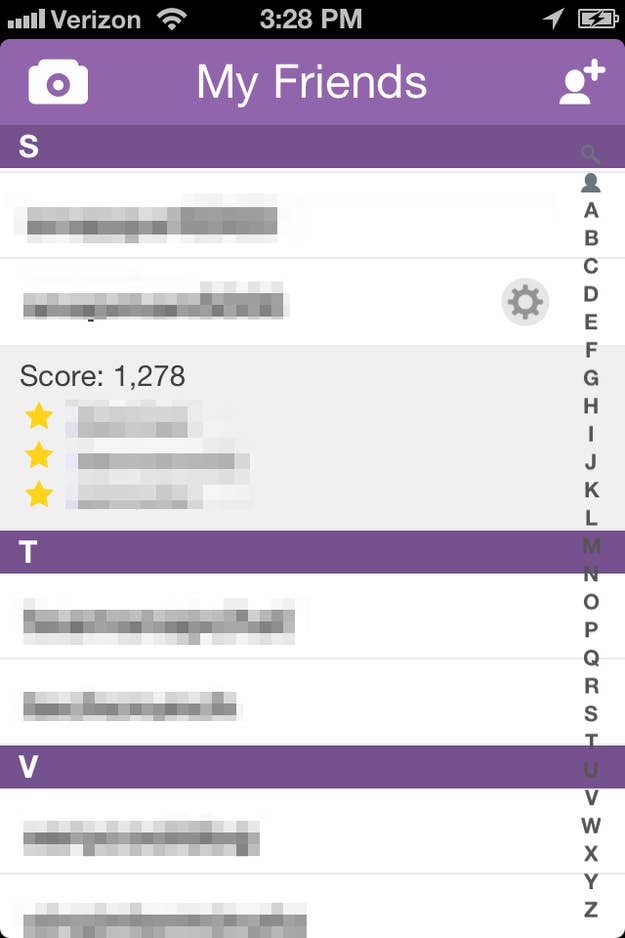
Late last year, BuzzFeed reported on a little-known SnapChat feature: the web profile. It was a permanent outgrowth of SnapChat's temporary-messaging service, a fully public list of your most-snapped friends. Since it wasn't referenced anywhere in the app itself, it appeared to be a vestige of a defunct web interface, or some kind of rejected feature idea. Nonethess, it was there. And that was kind of horrifying! As BuzzFeed's Katie Notopoulos said at the time:
For anyone looking at your Snapchat profile, it's pretty easy to find out the answer to the inevitable who the fuck is this bitch you've been Snapchatting?!? question. Since Snapchat presents itself as private — basically offline — many people use the same username as they use for other social media accounts. When I browsed through a few of my friends' accounts, a quick Google search of their usernames pulled their Instagram and Twitter accounts right up.This felt like a betrayal at the least; you could make a good case that it was a full-on privacy breach. Even Facebook lets you hide your friends list from people. On Snapchat, there are no privacy options. If you snap, the people you snap with are public.
Well, last night, Snapchat 5.0 was released. And look what's now a core feature:

When you tap a username in your friends list, its leaderboard comes up instantly.
As was the case when the leaderboard feature first came to light, the problem isn't that it exists, it's that most users don't know it exists. They're using Snapchat with a (reasonable!) expectation of privacy, while in fact Snapchat is collecting and sharing information about their habits with the world (or at least an especially savvy, or creepy, part of it). Today, rightfully, users who weren't aware of the old leaderboard are flipping out.
Soon, after people get used to this feature and adjust their Snapchatting habits accordingly, it will cease to be shocking. But that won't change the fact that, whatever the original intention of the web leaderboard was, Snapchat used a breach of trust as a pilot program for a new feature. Every successful social network tests users' comfort, and Facebook has elevated its mission to make your private data public without ever *technically* breaking its own rules to an artform. But Snapchat has done something more: it actively breached users' trust, and when they didn't seem to care, it made that breach a central part in its app.
Maybe the slow creep of Facebook and Google, or the endless din of open-ended "privacy breach" stories, or the here-today, gone-five-minutes-later headlines about data leaks have lowered the cost of failing to meet your users' privacy expectations to zero. Or maybe people who use Snapchat, the defining ephemeral service, don't feel the need to trust it in the first place. Perhaps they're encouraged by the inherently illicit feeling of sending timed messages, or maybe it's just a consequence of Snapchat's young, scarily internet-native user base.
Either way, this feels like something new; a bold and discomfiting policy to "act first, apologize never." And it may just be how things work from now on.
